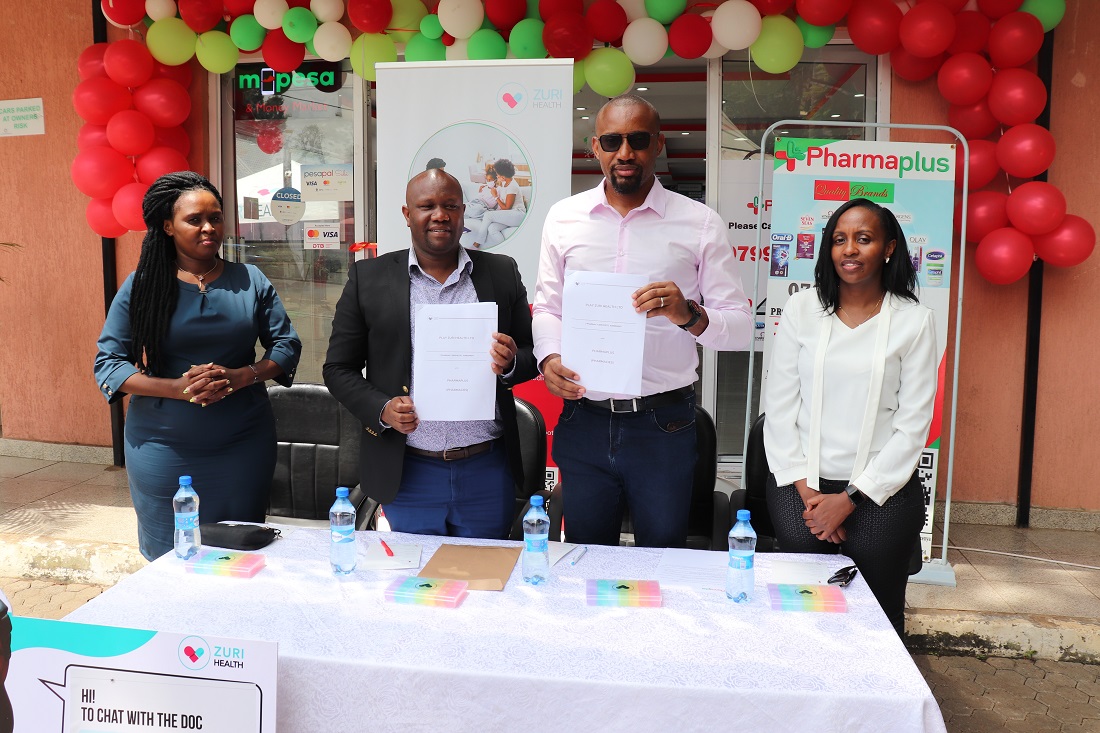Headaches can sometimes be so painful you wonder if something more serious is wrong. Most headaches are due to tension, migraines, or sinus issues, but a sudden, severe headache can be a symptom of a more urgent problem, such as a stroke.
It’s important to note that most headaches are unrelated to a stroke. However, if you or someone you know experiences a sudden, severe headache along with other neurological symptoms, seek immediate medical attention.
Time is critical in the diagnosis and treatment of a stroke, and early intervention can help to prevent permanent damage or death. Strokes are a life-threatening emergency – according to the World Health Organisation (WHO) 15 million people worldwide suffer a stroke annually. Of those, five million die and another five million are left permanently disabled.
A headache associated with a stroke is typically different from a routine headache in several ways.
A normal headache
Most headaches develop gradually and can be triggered by factors like stress, tension, lack of sleep, certain foods, caffeine, or dehydration. Pain is usually felt in the head, face, or neck, in a dull, aching, or throbbing pain. Other symptoms such as sensitivity to light or noise, nausea, and vomiting may also be experienced, but these are not typically as severe as those associated with a stroke.
Stroke-related headache
Headaches related to stroke typically occur suddenly and with intensity – often described as “the worst headache of my life”. The pain can be on one side of the head, particularly if the stroke affects a specific area of the brain. The headache may persist for an extended period, whereas routine headaches often resolve with time or after taking pain relief medication.
Stroke-related headaches are also often accompanied by other neurological symptoms, such as weakness or numbness on one side of the body, slurred speech, vision problems, dizziness, confusion, and problems with balance or coordination.
Strokes are a medical emergency that can lead to paralysis, loss of consciousness, and difficulty speaking or understanding language. It’s crucial to seek immediate medical attention if you or someone else is experiencing symptoms that indicate a stroke. There is a time-sensitive window for treatment to minimise damage to the brain and improve the chances of recovery, and only a medical professional can provide a definitive diagnosis and appropriate treatment.
What causes a stroke?
Most strokes are caused by a blockage in a blood vessel that supplies blood to the brain. This type of stroke is known as an ischemic stroke, and it occurs when a blood clot forms and obstructs the flow of blood to a part of the brain.
The most common cause of an ischemic stroke is a thrombus, which is a blood clot that forms inside a blood vessel in the brain or elsewhere in the body, then breaks loose and travels to the brain, causing a blockage. This type of clot usually forms in arteries that have become narrowed due to atherosclerosis (buildup of fatty deposits), or in the heart in individuals with certain heart conditions, such as atrial fibrillation (AFib).
>> Patients to Have Access to Their Own Medical Records As Hospital Goes Digital
AFib is a type of irregular heartbeat with a lack of proper contraction the heart chambers (the atria) and blood clots form within the atrial. These blood clots can break off and travel through the body to block an artery elsewhere. If an embolism blocks an artery in the brain, this results in a stroke. Untreated atrial fibrillation is a common cause of stroke.
In simple terms, a stroke is like your brain’s equivalent of a heart attack. When a blood clot blocks a blood vessel in the brain, the brain cells in that area do not receive the necessary oxygen and nutrients, leading to damage and potentially causing stroke symptoms. The severity of the stroke and the resulting symptoms depend on the size and location of the blocked blood vessel.
According to WHO, the risk of death depends on the type of stroke. Transient ischaemic attacks (TIA) – where symptoms resolve in less than 24 hours – have the best outcome, followed by stroke caused by carotid stenosis (narrowing of the artery in the neck that supplies blood to the brain). Blockage of an artery is more dangerous, with rupture of a cerebral blood vessel the most dangerous of all.
Reducing the risk
According to the Centers for Disease Control and Prevention (DCD), many stroke risk factors are lifestyle related, and 80% of strokes are preventable. This means that leading a healthy life and managing certain medical conditions can go a long way in lowering risk.
High blood pressure (hypertension) is the single most important treatable risk factor for stroke, and preventing, diagnosing, and controlling it is critical. Regularly monitor your blood pressure and work with your healthcare provider to keep it within a healthy range.
Diabetes is another high stroke risk. Uncontrolled diabetes can increase the risk of stroke, so it’s crucial to manage your blood sugar levels effectively. Being overweight also places you at a higher risk. Achieve and maintain a healthy weight through regular exercise, and if you drink, do so in moderation, as excessive alcohol consumption can raise blood pressure and increase the risk of stroke.
>> The Health Effects Of Smoking Oris Cigarettes
Eat a well-balanced diet rich in fruits, vegetables, whole grains, lean proteins, and healthy fats, and avoid excessive salt, saturated fats, and trans fats, as they can contribute to high blood pressure and other cardiovascular issues. Statistics from WHO show that for every 10 people who die of stroke, four could have been saved if their blood pressure had been regulated.
Smoking also significantly increases stroke risk. Among those aged under 65, two-fifths of stroke deaths are linked to smoking. Tobacco use is one of the most significant modifiable risks, so if you smoke, seek help to quit.
Having a stroke can be devastating to the sufferer and their families. It is a common cause of adult disability and can rob a patient of their independence. If you are at all concerned about your stroke risk, ask your healthcare provider to assess and address your individual stroke risk effectively.
Dr Henry Ddungu is medical expert and spokesperson for the World Thrombosis Day (WTD) campaign.
>>Equihealth: An Affordable Group Health Insurance By Equity Bank













Leave a comment